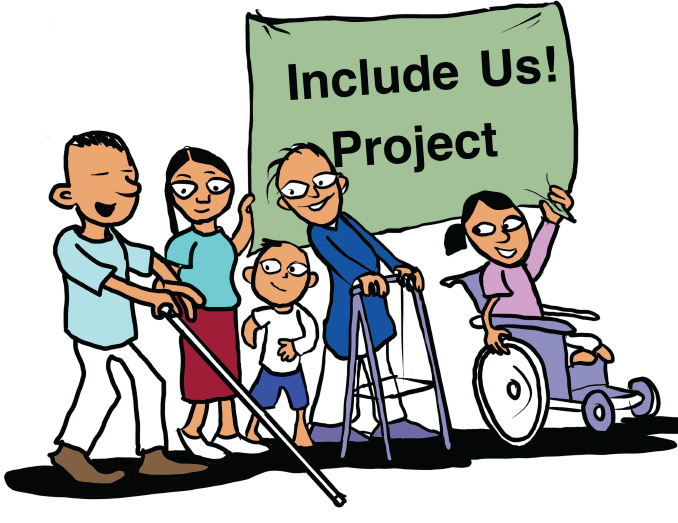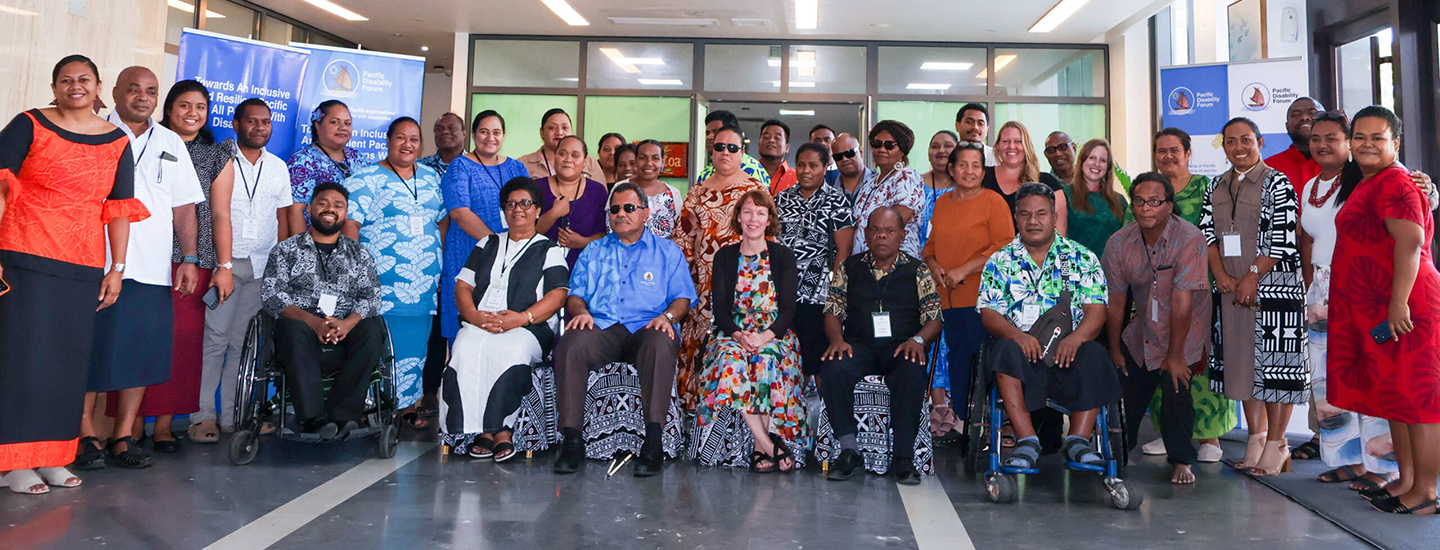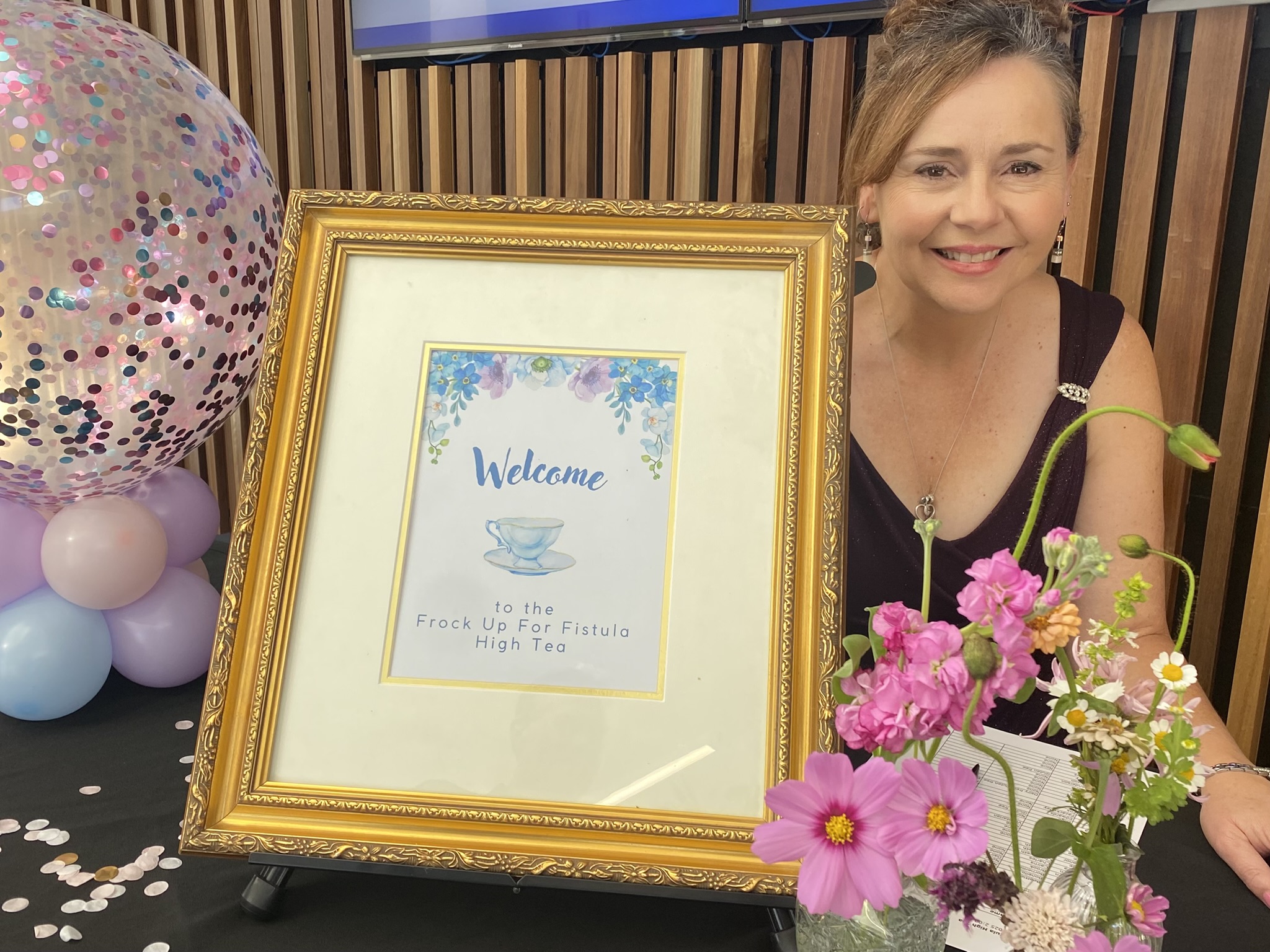Making Humanitarian Action Inclusive
Stories | November 6, 2020
World Humanitarian Day: Making Humanitarian Action Inclusive
At time of crisis, people with disabilities are often among the worst affected and the last to receive help. They may not hear about the best ways to protect themselves or be able to reach help. They may struggle to access essentials like clean water and food – and in the case of Covid-19, soap and other hygiene items to protect themselves from infection.
This World Humanitarian Day, learn more about CBM’s inclusive humanitarian response and how we’re working alongside people with disabilities and Disabled People’s Organisations to ensure no one is left behind during the Coronavirus pandemic.
Partnering with Disabled People’s Organisations to reach the most vulnerable
A key part of inclusive humanitarian response is identifying and reaching the individuals and households who are in greatest need of assistance. People with disabilities are often already marginalised and excluded in their communities. During humanitarian crises, they may be unable to get to points where aid is being distributed, or information about available support might not be accessible. As a result, they can miss out on vital help.
To ensure that help reaches the most vulnerable, CBM works with partners– especially national or local Disabled People’s Organisations – in affected areas. These groups will often already have contact with local families, so they can quickly and efficiently identify and make contact with those most at-risk and distribute vital assistance.
During the COVID-19 pandemic, CBM has worked extensively with Disabled People’s Organisations (DPOs) across Africa and Asia, supporting them to provide essentials like emergency food parcels, hygiene packs and small cash transfers to help support a family while they’re unable to work.
In Nepal, we’re working with the National Disabled Women’s Association to distribute food and hygiene packages to people with disabilities and their families – lockdown measures have left many with no income to buy daily essentials.
Access to information is also vital at times of crisis, and local disability organisations are ideally placed to ensure that information is accessible to all. By supporting our local partners to translate materials into local languages, as well as formats such as easy-read, large print or braille, CBM has been helping ensure that people with disabilities know how to protect themselves and access support services. In Kenya, for example, our partner APDK produced this information video on how to keep wheelchairs clean.
People with disabilities as active partners
Inclusive humanitarian response also means actively involving people with disabilities in the process of planning for and decision-making around humanitarian crises, and delivering assistance. This includes training DPOs on how to engage local councils in their areas to include people with disabilities in their humanitarian responses.
After receiving emergency relief packages from CBM and other partner Edmund Rice Ministries in the Philippines, Rhoman (pictured, in the red t-shirt) decided to become a Disability Inclusive Disaster Risk Reduction (DiDRR) Motivator, to help other people in his community.
“I am a recipient but I also want to contribute. When I found out that there is a preparation of relief packs, I decided to join right away. In my own small way, I want to contribute to the community. I am happy that during that day, we helped more than a hundred people in our village.”
With our partners, CBM also sets up and trains local Disaster Management Committees, which include people with disabilities, to raise awareness and carry out humanitarian response activities in their communities.
Roman is a member of a local Disaster Management Committee trained by CBM partner Centre for Disability in Development (CDD) in Bangladesh. He’s been educating people in his community about COVID-19 prevention measures.
Roman explains: “I decided to join and started working with all, including persons with disabilities, in my community. I wanted to prove that if opportunities are available in the society then persons with disabilities can also contribute in the community effectively.
Find out more about our inclusive COVID-19 response.
Pledge to stand in solidarity with all our neighbours, and encourage our government to provide vital support to vulnerable nations by signing the End COVID For All pledge here.
CBM Australia acknowledges the support of the Australian Government through the Australian NGO Cooperation Program (ANCP).
https://www.cbm.org.au/stories/making-humanitarian-action-inclusive
Related Stories

Easy Read your way through our evaluation report
At CBM Australia, we recognise that accessibility is not optional – it is a...

Growing Stronger Together: Supporting OPDs across the Pacific
CBM Australia is proud to partner with Pacific Disability Forum on the Growing Stronger...

Frock Up For Fistula: a High Tea of hope and healing
Something very special happened this Mother’s Day weekend. CBM Ambassadors Lyn Wake and Glenys...
